第21章
ORIGIN OF GOVERNMENT-CONTINUED.
III.The tendency of the last century was to individualism; that of the present is to socialism.The theory of Hobbes, Locke, Rousseau, and Jefferson, though not formally abandoned, and still held by many, has latterly been much modified, if not wholly transformed.Sovereignty, it is now maintained, is inherent in the people; not individually, indeed, but collectively, or the people as society.The constitution is held not to be simply a compact or agreement entered into by the people as individuals creating civil society and government, but a law ordained by the sovereign people, prescribing the constitution of the state and defining its rights and powers.
This transformation, which is rather going on than completed, is, under one aspect at least, a progress, or rather a return to the sounder principles of antiquity.Under it government ceases to be a mere agency, which must obtain the assassin's consent to be hung before it can rightfully hang him, and becomes authority, which is one and imperative.The people taken collectively are society, and society is a living organism, not a mere aggregation of individuals.It does not, of course, exist without individuals, but it is something more than individuals, and has rights not derived from them, and which are paramount to theirs.
There is more truth, and truth of a higher order, in this than in the theory of the social compact.Individuals, to a certain extent, derive their life from God through society, and so far they depend on her, and they are hers; she owns them, and has the right to do as she will with them.On this theory the state emanates from society, and is supreme.It coincides with the ancient Greek and Roman theory, as expressed by Cicero, already cited.Man is born in society and remains there, and it may be regarded as the source of ancient Greek and Roman patriotism, which still commands the admiration of the civilized world.The state with Greece and Rome was a living reality, and loyalty a religion.The Romans held Rome to be a divinity, gave her statues and altars, and offered her divine worship.This was superstition, no doubt, but it had in it an element of truth.To every true philosopher there is something divine in the state, and truth in all theories.Society stands nearer to God, and participates more immediately of the Divine essence, and the state is a more lively image of God than the individual.It was man, the generic and reproductive man, not the isolated individual, that was created in the image and likeness of his Maker."And God created man in his own image; in the image of God created he him; male and female created he them."This theory is usually called the democratic theory, and it enlists in its support the instincts, the intelligence, the living forces, and active tendencies of the age.Kings, kaisers, and hierarchies are powerless before it, and war against it in vain.The most they can do is to restrain its excesses, or to guard against its abuses.Its advocates, in returning to it, sometimes revive in its name the old pagan superstition.Not a few of the European democrats recognize in the earth, in heaven, or in hell, no power superior to the people, and say not only people-king but people-God.They say absolutely, without any qualification, the voice of the people is the voice of God, and make their will the supreme law, not only in politics, but in religion, philosophy, morals, science, and the arts.The people not only found the state, but also the church.They inspire or reveal the truth, ordain or prohibit worships, judge of doctrines, and decide cases of conscience.Mazzini said , when at the bead of the Roman Republic in , the question of religion must be remitted to the judgment of the people.Yet this theory is the dominant theory of the age, and is in all civilized nations advancing with apparently irresistible force.
But this theory has its difficulties.Who are the collective people that have the rights of society, or, who are the sovereign people? The word people is vague, and in itself determines nothing.It may include a larger or a smaller number; it may mean the political people, or it may mean simply population; it may mean peasants, artisans, shopkeepers, traders, merchants, as distinguished from the nobility; hired laborers or workmen as distinguished from their employer, or slaves as distinguished from their master or owner.In which of these senses is the word to be taken when it is said, "The people are sovereign?" The people are the population or inhabitants of one and the same country.That is something.But who or what determines the country? Is the country the whole territory of the globe? That will not be said, especially since the dispersion of mankind and their division into separate nations.Is the territory indefinite or undefined? Then indefinite or undefined are its inhabitants, or the people invested with the rights of society.
Is it defined and its boundaries fixed? Who has done it? The people.But who are the people? We are as wise as we were at starting.The logicians say that the definition of idem per idem, or the same by the same, is simply no definition at all.
The people are the nation, undoubtedly, if you mean by the people the sovereign people.But who are the people constituting the nation? The sovereign people? This is only to revolve in a vicious circle.The nation is the tribe or the people living under the same regimen, and born of the same ancestor, or sprung from the same ancestor or progenitor.But where find a nation in this the primitive sense of the word? Migration, conquest, and intermarriage, have so broken up and intermingled the primitive races, that it is more than doubtful if a single nation, tribe, or family of unmixed blood now exists on the face of the earth.
A Frenchman, Italian, Spaniard, German, or Englishman, may have the blood of a hundred different races coursing in his veins.
The nation is the people